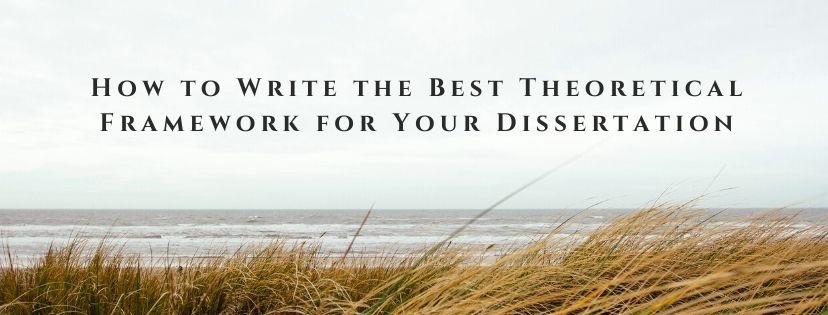After a concise overture of the concerned discipline in the introductory section of a research paper or dissertation, the literature review should begin by delineating the significance of and the most critical works in that discipline. This handout provides six easy-to-follow steps for an impeccable literature review.

This handout provides six easy-to-follow steps for an impeccable literature review. To give you an opportunity to practice proofreading, we have left a few spelling, punctuation, or grammatical errors in the text. See if you can spot them! If you spot the errors correctly, you will be entitled to a 10% discount.
A literature review is a survey of academic sources on a specific subject, providing an overview of current knowledge, allowing you to discuss relevant theories, methods, and gaps in the existing research. Writing a literature review contains finding relevant publications, critically analyzing the sources, and explaining your findings in the literature. A well-written literature review doesn’t only summarize sources, it also aims to analyze, synthesize, and critically evaluate to give a clear picture of the state of knowledge on the topic.
After a concise overture of the concerned discipline in the introductory section of a research paper or dissertation, the literature review should begin by delineating the significance of and the most critical works in that discipline. This section, in any research paper or dissertation, is an accurate reflection of the authors’ familiarity and understanding of the concerned discipline. Thereby, compiling it methodically may appear daunting sometimes, especially to novice researchers. The following simple and straightforward tips can act as the exhaustive rubric and offer meaningful insight to prospective authors on how to formulate a flawless literature review.
The foremost tip for any prospective author would deeply peruse the literature reviews in other research papers in the concerned field and acquire a fair idea about how they are composed. It should be clearly borne in mind that this step is to be followed only to get the hang of the outline of the literature review and not to replicate or simply rephrase any other related work.
Notwithstanding its significance, this section is often overlooked while writing and misconstrued as a segment that merely synthesizes and summarizes the existing research. Many time, authors fail to understand that for a good literature review, they should provide a detailed critique of the subject from their own standpoint, precisely enumerating the merits and pitfalls of the existing research works and the plausible solutions to overcome the latter. The authors should deem it imperative to highlight the gaps in the existing literature and elucidate in their work how their study addresses those gaps and contributes to the existing research. Even if there are certain gaps that their research may fail to bridge, they ought to identify them and outline them in future directions. Lastly, the authors should double-check to ascertain that they have not missed the most influential theories and the state-of-the-art works in their field.

For coherence between consecutive sentences, the authors should organize the literature into multiple subsections. The grouping may be done chronologically or thematically. The former is straightforward and refers to tracing the temporal evolution of the topic, whereas the latter entails identifying discernible patterns among different research works and categorizing them into multiple subclasses. It shall be noted that such patterns may not be exactly specified in the existing research works, and the authors may need to detect them and provide a cogent explanation for such classification. Another interesting feature to highlight in this section could be inconsistencies in different theories.
As it is impossible and impractical to summarize all the research works in a given field, the authors should specify the scope of the literature review and provide a rationale for not discussing any subtopics pertinent to the study. This is important to let any editor, reviewer, or a general reader know that the authors have full awareness of the field and have not missed any relevant subtopics heedlessly or unwittingly.
It is of paramount importance for the authors to ensure that they have not failed to cite the original source of any information, advertently or inadvertently. It could appear tempting, at times, to share some interesting data or statistics as one’s own, possibly by paraphrasing the original text. However, this will be considered blatant plagiarism and the research paper may potentially be desk rejected or never sent for peer review.
The authors are advised not to be demeaning in their words while contradicting some other author’s opinion or identifying flaws in their methodology. The inadequacies in other studies should be encapsulated in an objective, concise, and most importantly, bias-free manner.
These elementary ground rules are beneficial for novice as well as experienced researchers and when followed earnestly, will most assuredly culminate in a profoundly meticulous review of the existing corpora in the concerned field.
When you’ve finished writing and revising your literature review, don’t forget to edit and proofread thoroughly before submitting. Looking for an expert to polish the language of your otherwise perfect literature review? Not a native speaker of English or an English language expert? Be sure to check out our professional editing and proofreading service!
Best Edit & Proof expert editors aim to provide your manuscripts with proper scholarly and academic tone and style. They will significantly improve the chances of having your research manuscript accepted for publishing. They provide subject-area proofreading and editing services in several fields categorized under various disciplines. With our extensive knowledge and expertise, we will help you find the right tone and style for your manuscript.
If you need our subject-area editors to format your manuscripts, giving you the fundamental rules for formatting your manuscripts as described in your guidelines, such as APA, MLA, or Chicago/Turabian styles, then contact us. At Best Edit & Proof, our proofreaders and editors edit every type of academic paper. We have a user-friendly website and a simplified ordering process.
If you would like our subject-area editors and language experts to work on your project for the improvement of its academic tone and style, then please visit the order page. It is easy! It takes only a few minutes to submit your paper and complete the process. Click here to see how it works.
We have flat-rate pricing based on our type of service (editing or proofreading), word count, and turnaround time. Enter your word count or copy and paste your document into our pricing calculator to get an instant quote.
If you need support for academic editing and proofreading, contact us. You can also e-mail us or use the 24/7 live chat module to get direct support. Our doctorally qualified editors will polish and fine-tune your projects.
Follow us on Twitter, LinkedIn, Facebook, Instagram, and Medium.
For more posts, click here.
How to Determine Variability in a Dataset
14.10.2023
How to Determine Central Tendency
19.02.2023
How to Specify Study Variables in Research Papers?
14.01.2023
Population vs Sample | Sampling Methods for a Dissertation
14.01.2023
How to Ensure the Quality of Academic Writing in a Thesis and Dissertation?
04.12.2022
How to Avoid Anthropomorphism in Your Dissertation?
04.11.2022
How to Write a Research Methodology Section for a Dissertation and Thesis
07.08.2022
How to Write a Theoretical Framework for a Dissertation and Thesis?
05.08.2022
How to Write Literature Review for a Dissertation and Thesis
02.08.2022
How to Write a Dissertation and Thesis Introduction
31.07.2022

One of the main things that any editor or proofreader looks out for while editing a piece of text is punctuation marks. The reason is simple — they can alter the meaning of your text if you do not use them correctly. It becomes even more prominent when you are writing an academic paper. In academic writing, an author may be easily misunderstood when ambiguous sentences are used. Punctuation marks mainly serve the purpose to disambiguate sentences. While literary or other types of writing will have a certain degree of freedom for using punctuation marks, academic work needs to be precise and correct. This article will cover the importance of punctuation marks in academic writing.
Continue Reading
A theoretical framework primarily supports the idea of a research study. It bears all the theories that prove the essence and importance of any research. In a nutshell, it is developed to explain the research and comprehend its circumstances. It may involve all the theory-based logic behind the importance and existence of your research in academics. This step-by-step guide discusses how to build a theoretical framework for a dissertation.
Continue Reading
Writing a thesis can be an overwhelming task for many college and graduate students. Managing all the elements associated with a thesis while ensuring that the quality is not compromised can be challenging. However, what is even more strenuous is deciding on a thesis's layout. "How to structure a thesis" is a question that several final-year students struggle to answer. And understandably so, as all colleges and universities have their guidelines for drafting a thesis. However, there is an immutable structure that's common for every thesis. In this brief guide, we will take a look at this structure and analyze each of its components.
Continue Reading